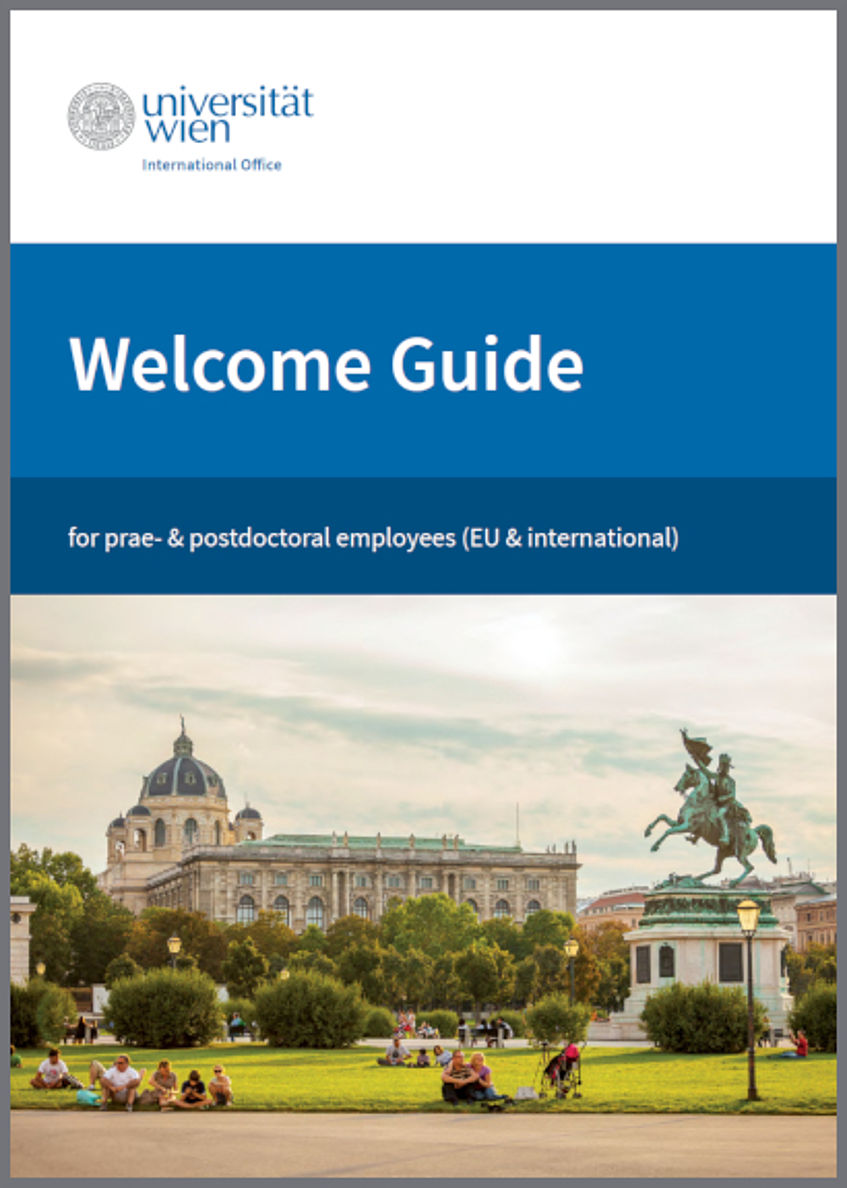Admission
Once you have accepted a position with a VDSEE supervisor, please follow these steps:
Please note: In order to enroll for Doctoral Studies at the University of Vienna, it is mandatory to have a supervisor that has agreed to be your mentor.
- Become a VDSEE member by signing the Code of Good Practice. Afterwards, the executive manager will provide you with more information about the program and what's expected of you (exposé, public presentation etc.).
- Enroll at the University of Vienna by following the instructions on the website of the center for Doctoral/PhD Programmes in Life Sciences
- In accordance with your supervisor, please choose one of the following doctoral research fields: Biology, Molecular Biology, Environmental Sciences or Earth Sciences. Find out more about the doctoral research fields here
- Once you've enrolled, the admissions office will contact you to get your student ID number (Matrikelnummer) and student ID card.
- If you have any questions please directly contact doktorat.zulassung@univie.ac.at
- If applicable, set up a working contract in accordance with your supervisor.
When starting your PhD please also consider the following points:
Tuition fee
Please be aware that you have to be enrolled at the University of Vienna until you defend. Fees have to be paid every semester, the deadlines are here.
General semester dates:
winter term (= Wintersemester, WS): 1 October – 28 February
summer term (= Sommersemester, SS): 1 March – 30 September
Non EU-citizens, don't forget to apply online for equal status with EU citizens by March 31 and Oct. 31.
Find out more at: "Studying at the University of Vienna - Tuition fee"
International doctoral candidates
Moving to a new city and country and navigating a new university can be challenging, especially in the beginning.
Information on finding a place to live, obtaining insurance and a residence permit, and finding a suitable German language course are provided Doctorate@UniVie website and in the Orientation Guide for International PhD Candidates.
Contact
- Liaison Officers: The first contact persons for academic staff (prae- and postdocs) from third countries who wish to establish themselves in Vienna. They provide initial information on visas and residence permits (also with regard to family members). The Liaison Officer of the Faculty of Life Sciences is: Ms. Susanne Menschik-Zunzer
- Human Resources Department for immigration law matters: aufenthaltsrecht.personal@univie.ac.at
- Doctoral candidates who are not employed by the University of Vienna (e.g., fellowship holders) are encouraged to visit the OeAD website, Austria's Agency for Education and Internationalisation, for information on visas and residence permits, including checklists. Contact: either use the online contact form or send an email to recht@oead.at.
Welcome Guide for prae- & postdoctoral employees (EU & international)
"This guide provides you with important information on preparing your and your family members’ entry to Austria and your arrival in Vienna. You will find useful information about settling in and living in Vienna, as well as tips on where to find help and links to institutions which can support you while getting established in Austria." (Jean-Robert Tyran, p.1)
International Office, University of Vienna, May 2020
Note: With regard to alien law, we advise to obtain additional information on the official websites of the OeAD, Austria's Agency for Education and Internationalisation and the Federal Ministry of the Republic of Austria for European and International Affairs.
Welcome Days for PhD candidates
The University Vienna offers "Welcome days for PhDs" to help new doctoral candidates to orientate themselves at the University of Vienna. They take place at the beginning of each winter semester. At this event you will receive important information concerning the doctorate, make first contacts with established researchers and peers, and get to know the University of Vienna.

